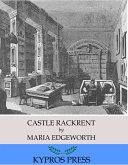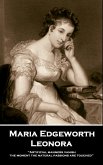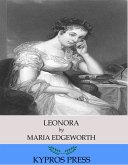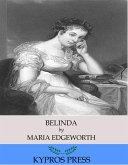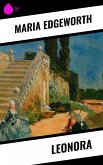Maria Edgeworth's "Leonora" is a captivating exploration of the complexities of human emotion, societal expectations, and the nature of self-identity in the early 19th century. Set against a backdrop of romantic entanglements and spirited dialogues, Edgeworth employs a sophisticated narrative style that blends realism with irony. The novel's rich character development and intricate plotting reflect the literary context of the time, marked by the rise of the psychological novel and a burgeoning interest in moral philosophy, making it an essential study for understanding women's literature and the evolution of the novel. Edgeworth, an influential figure in Anglo-Irish literature, often drew from her own life experiences and the socio-political climate of her era to inform her writing. Her upbringing in Ireland, along with her keen observations of both British and Irish societies, enabled her to infuse "Leonora" with a nuanced critique of the gender norms and class structures of her time. As a pioneering novelist, Edgeworth's focus on strong, intelligent female characters exemplifies her commitment to challenging the gender dynamics of her day. "Leonora" is a must-read for anyone interested in early feminist literature or the development of the modern novel. Readers will find themselves engrossed in its themes of autonomy and virtue, while also gaining insight into the historical context of female agency. Edgeworth's narrative not only entertains but invites critical reflection on the moral dilemmas that still resonate today.
Dieser Download kann aus rechtlichen Gründen nur mit Rechnungsadresse in A, B, BG, CY, CZ, D, DK, EW, E, FIN, F, GR, H, IRL, I, LT, L, LR, M, NL, PL, P, R, S, SLO, SK ausgeliefert werden.




